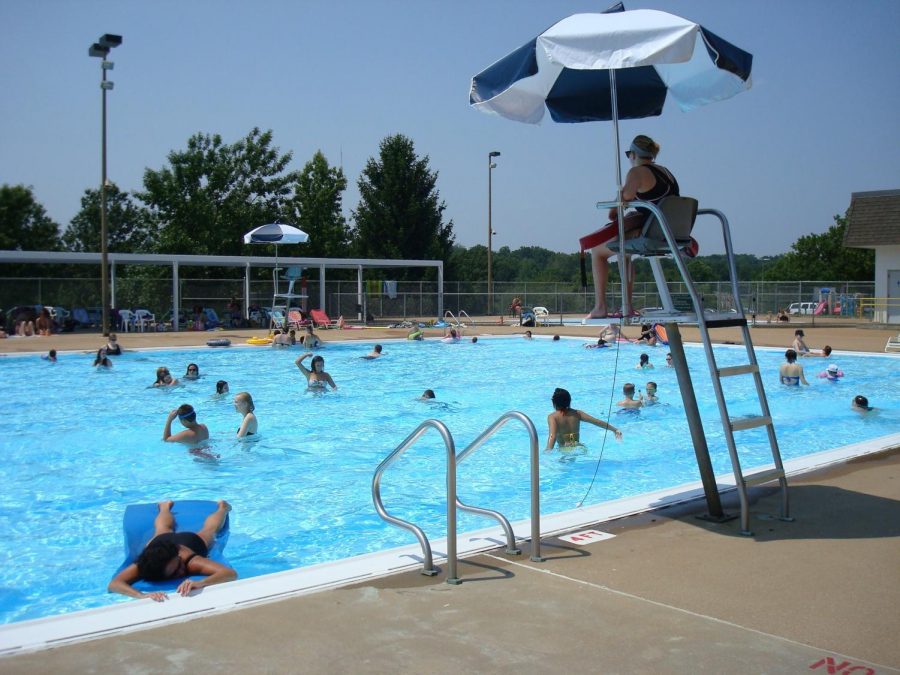The Mehlville Board of Education last week recommended district officials craft a 2011-2012 budget incorporating roughly $4 million in cuts while allocating moneys for certain items tied to technology and facilities.
The board voted 6-0 on the budget recommendation, which takes into account most of the items previously included in the district’s budget reduction plan. While local and state funding projections remain preliminary, officials said they would aim for a budget that calls for $99.2 million in revenues and $99.7 in expenditures.
The additional $500,000 over revenues would be used to keep the district’s literacy coaches and parts of its Response to Intervention efforts going another year.
Both items have been supported over the past two years by one-time stimulus funds that are expected to run dry at the end of the current school year.
The proposal also provides for the allocation of $50,000 to $60,000 to ensure full funding of Mehlville’s summer school program. Officials are not sure if the state will fully reimburse school districts for summer school next year.
The proposal would reduce the district’s operating reserve to an estimated $12.5 million in 2011-2012 from a projected $13 million at the end of 2010-2011.
That would put the reserve at 14.6 percent of expenditures. The minimum balance required by the state is 3 percent.
Board members last week also authorized administrators to set aside up to roughly $1.5 million to be spent, if needed, on upgrading fire alarms at Mehlville and Oakville high schools, investing in electronic readers instead of textbooks and unexpected facilities repairs.
“… Those will not be in a budget that will be presented, but they could be potential draw-downs of a balance,” Chief Financial Officer Noel Knobloch told the board.
Taking those items into consideration, the district would spend $101.3 million in 2011-2012 and reduce its balance to $10.9 million, or 12.7 percent of expenditures.
However, Knobloch and Deputy Superintendent Eric Knost emphasized the additional expenses may not all occur next year.
“We’ve been adamant in saying we do not want to utilize balances to pay for recurring expenses, and I just want to make sure we clarify that … in reality, all of these things that are recommended possible spend-downs are, in my opinion, one-time funds if we technically define them,” Knost told the board. “The literacy pieces — the reading coaches and facilitators — those were never in our budget to begin with. Those came with the stimulus money, so we knew they were going away. So that’s not something we were taking out; it was being taken out by default.
“The fire alarms and on down … What I like about this option — because I know that there’s been this challenge for us to consider how to do some spend down and I think I’ve been pretty public in saying that that sometimes makes me nervous — but what I like about these pieces is that we’re not going to go out tomorrow and spend these things. The fire alarms … that’s coming. We know that. We work very well with our fire inspector, and he just tells us that there’s going to be a time in the near future when we have to address those fire alarms and we know that cost is there. So this way we don’t get blindsided when that happens.
“The E-Learning (electronic readers) piece, we need to understand that that’s not necessarily an add-on,” Knost continued. “It’s the idea to look at a proposal … as a return-on-investment the cost-saving measure where instead of buying heavy books … there are electronic and modern-day technology alternatives to that.”
He added, “We consider those all one-time, and we think it’s important to point out that those are not things we’ll go out and write a check for tomorrow. It’s just allocating the potential funds so that it doesn’t further impact the existing budget.”
Officials will make roughly $4 million in reductions to next year’s budget, including:
A freeze on all salaries at their current levels, $1,350,000.
Reduction of 20 certified positions through attrition and reassignment, $900,000.
“Realignment” of administrative positions, $550,000.
The reduction plan also identifies $300,000 in the curriculum budget, including textbooks; $235,000 in savings from the recent refinancing of certificates of participation and $212,000 in savings by moving to a four-tier transportation system, eliminating 12 positions and delaying bus purchases.
Potential savings also include: $200,000 by delaying asphalt repairs and other projects; $155,000 in miscellaneous items from a contingency plan the board approved last spring; $100,000 by reducing supply budgets by 15 percent and $54,000 in reductions to the Parents as Teachers program.
Knobloch said the district for now will not pursue one of the reductions initially proposed — relocating part of the bus fleet, for a savings of $50,000 — because it is unfeasible.








